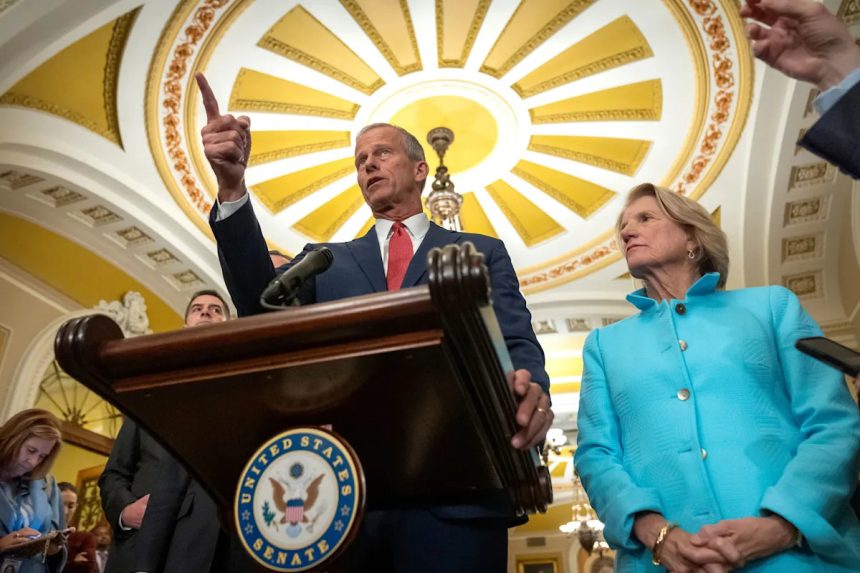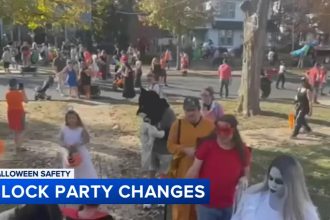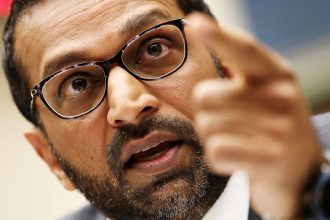After nearly six weeks of a painful shutdown, a critical number of Senate Democrats backed a Republican funding bill to reopen government — with little to show for holding out so long.
The breakthrough, which came together suddenly on day 40 of the shutdown, offers Democrats few new concessions beyond what Republicans had already proposed. In fact, the emerging deal mirrors what Senate Majority Leader John Thune, R-S.D., floated weeks ago during an interview with MSNBC: reopen the government now, and Republicans will later give Democrats a vote on extending the expiring Obamacare subsidies.
Late Sunday night, eight Democrats joined all but one Republican to clear a 60-vote threshold in the Senate, 60-40, opening debate on a House-passed funding bill so that the measure can be amended to combine three bipartisan, full-year spending bills with a stopgap continuing resolution to fund the rest of the government through Jan. 30.
In exchange, Senate leaders have promised a future vote on legislation to address the subsidies.
The only new additions to the emerging deal are provisions reversing government layoffs ordered during the shutdown, language preventing new layoffs through the duration of the stopgap, and backpay for federal workers — which is already required under a 2019 law.
Notably, there is no guarantee that the Obamacare subsidies will be extended — and no commitment from Republican House leaders to even hold a vote at all on the subsidies.
Still, the deal was good enough for eight Senate Democrats: Sens. Catherine Cortez Masto, D-Nev., Dick Durbin, D-Ill., John Fetterman, D-Pa., Maggie Hassan, D-N.H., Tim Kaine, D-Va., Angus King, I-Maine, Jackie Rosen, D-Nev., and Jeanne Shaheen, D-N.H.
Shaheen, one of the leaders of the bipartisan group of senators negotiating a deal, said during a press conference Sunday night that she understood that not all of her Democratic colleagues were “satisfied with this agreement.”
“But waiting another week, or another month, wouldn’t deliver a better outcome,” Shaheen said. “It would only mean more harm for families in New Hampshire and all across the country.”
“It wasn’t working,” King said of the Democratic strategy. “It’s been six weeks. Republicans made it clear they weren’t going to discuss the health care issue, Affordable Care Act tax credits until the shutdown was over.”
Kaine, another one of the Democrats supporting the funding bill, said in a statement Sunday that, “I have long said that to earn my vote, we need to be on a path toward fixing Republicans’ health care mess and to protect the federal workforce.”
He noted that Republicans hadn’t always guaranteed a vote on extending the subsidies, and he argued that lawmakers know their constituents expect them to vote for the enhanced tax credits.
“If they don’t, they could very well be replaced at the ballot box by someone who will,” Kaine said.
But several Democrats were quick to push back against the emerging legislation.
Sen. Elissa Slotkin, D-Mich., told reporters Sunday that she was not part of the final negotiations, and she raised concerns with the deal omitting action on the Obamacare subsidies.
“I wasn’t in the end-game,” Slotkin said, “but I always said it’s got to do something concrete on health care, and it’s hard to see how that happened.”
A second Democratic senator, who requested anonymity to discuss the legislation, said they were “unwilling to accept a vague promise of a vote, at some indeterminate point in the future, on an undefined bill extending the subsidies.”
And Sen. Alex Padilla, D-Calif., noted in a statement opposing the deal that the emerging bill wouldn’t do anything “to stop premiums from doubling for millions of Americans.”
“We can’t end this fight now. I will be voting no,” Padilla said.
“Twenty-five million people that’re either losing their health care coverage or their premiums are going up dramatically — they’re getting no relief out of that bill,” said Sen. John Hickenlooper, D-Colo., who voted against the legislation.
But Republicans didn’t need every Democrat to support the deal. They only needed those eight, with Sen. Rand Paul, R-Ky., joining the majority of Democrats in opposition to the bill.
Although the bill still has many steps before a final passage vote, it looks like the breakthrough on Sunday will eventually end the longest government shutdown in history. If senators unanimously agree to waive certain rules, the chamber could even hold a final vote in short order, though the House would still have to come back to Washington to pass the same bill before the government is reopened.
Once the package clears the Senate, Democrats won’t have much of a say over the fate of the legislation. Scores of House Democrats — led by Minority Leader Hakeem Jeffries, N.Y. — are expected to oppose the measure. But Republicans only need a simple majority in the House. Republicans could supply the votes on their own in the event that every Democrat opposes the bill.
Still, this is far from the last potential shutdown fight.
Even if, as expected, both chambers pass the bill and President Donald Trump signs it, most of the government will only be funded through that stopgap bill going until Jan. 30.
Congress could be back to another standoff in a matter of weeks. And if the subsidies issue hasn’t been resolved by then, Republicans may have an even more difficult time convincing Democrats to come along on another funding bill.
When Shaheen was asked Sunday night if Democrats would be willing to vote against government funding in January — if Republicans hadn’t extended the subsidies — she said that was “certainly an option that I think everybody will consider.”
This article was originally published on MSNBC.com









